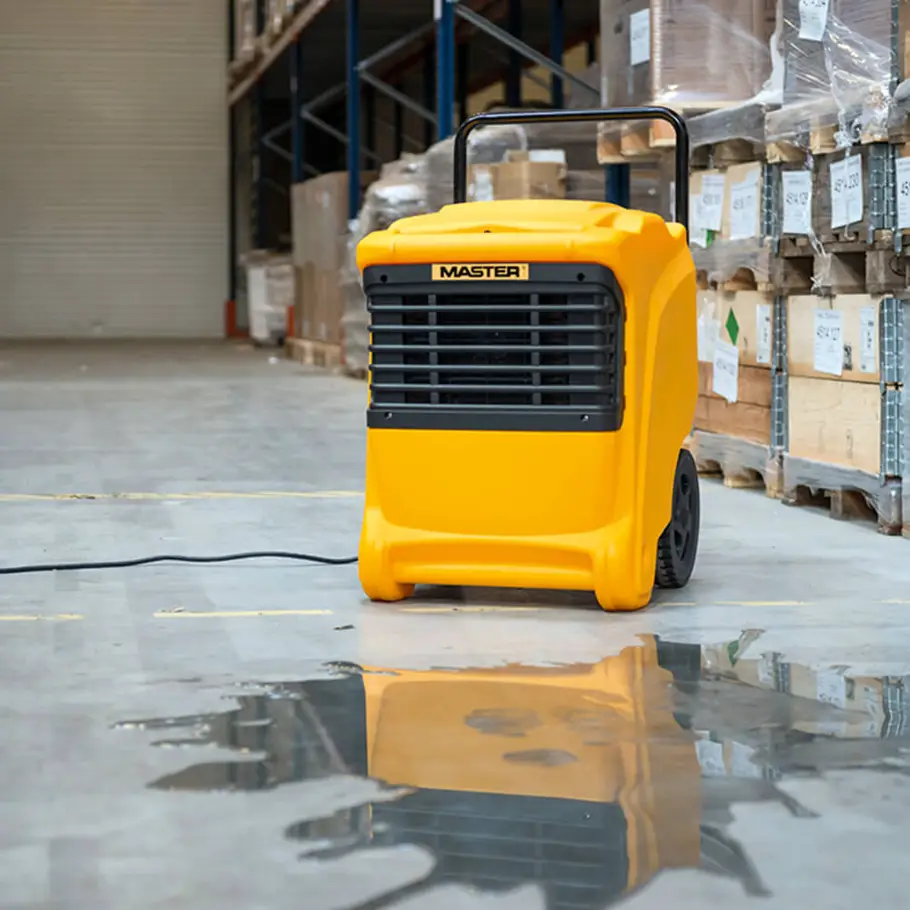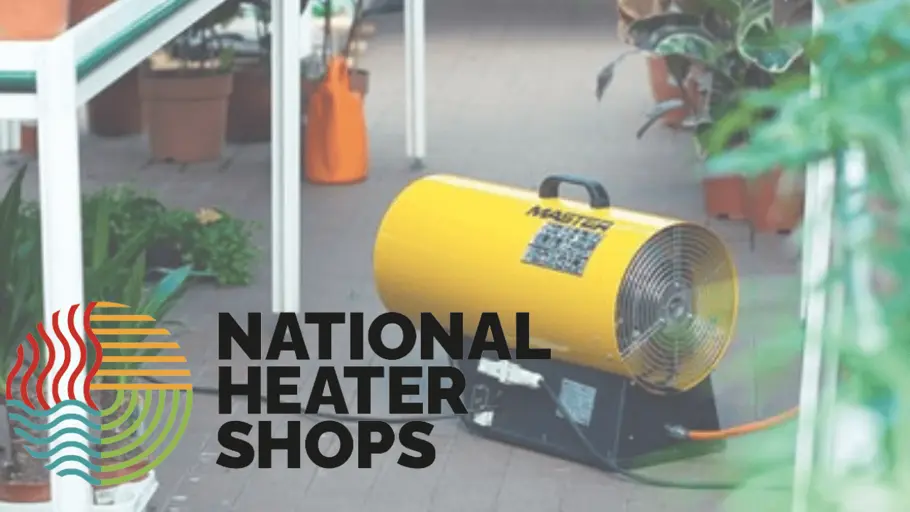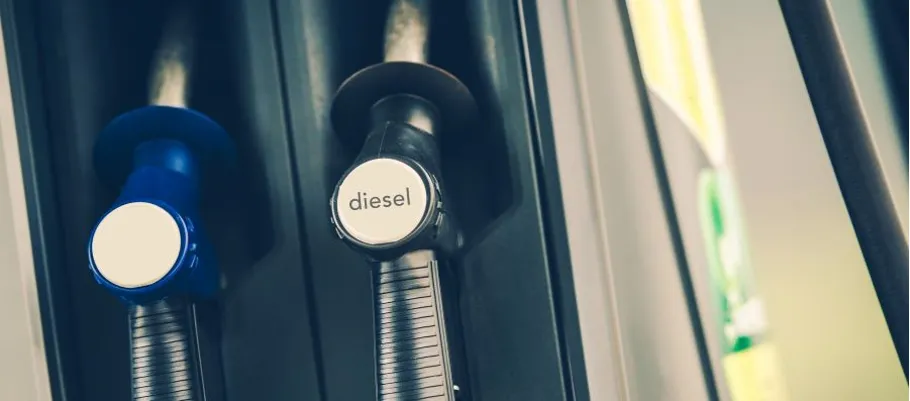Garage Dehumidifiers
What is the best dehumidifier for a garage?
The UK not only has a humid climate, but we also suffer from inclement weather. That can lead to all kinds of concerns in building such as garages. The average relative humidity can range from around 50-60 percent in the spring and summer, to as high as 80-90 percent in the colder months of autumn and winter. This climate, with regular rainfall and changable temperatures, makes humidity a problem. But, you can manage and avoid excess humidity with proper humidity control and the proper equipment.
Why is humidity a problem for garages?
More than 50 percent of UK homes have access to a garage. Whether a garage is attached or detached from the main building, they tend to suffer from the same issues. Garages are confined, dark, damp, cold in the winter and warm in summer. They have wide entrances that allow rainwater and snow to creep inside, but are usually enclosed and have bad air circulation. We even bring more moisture into garages ourselves when driving in cars and bikes that have been in the rain, for example. Depending on how a garage is used, they inevitably experience problems with condensation and damp. Those conditions are the ideal breeding ground for mould and mildew - plus many other issues.
When the relative humidity of a space is above 60 per cent, the speed that rust can develop and spread in these damp conditions increases significantly. Firstly, rust dramatically impacts the appearance of whatever if effects. Whether you fix up or display classics cars, or simply take pride in your belongings, rust is the enemy. Restoring and repairing rusted metal can be time consuming and expensive. Some of the restoration work might be suitable for DIY, but much of it might require a knowledgeable or experienced professional.
If left untreated, rust can weaken and corrode metal surfaces and damage connections, mechanical parts and electronics. This damage can compromise both the function and safety of a vehicle, or a piece of equipment. If internal components of a car, motorbike, or boat rust, they can be dangerous to use or they might not run at all. If you rely on a vehicle for any reason, you could be looking at some costly downtime.
If the relative humidity of a space is above 70 per cent, mould and mildew can start to thrive on surfaces. The presence of mould and mildew can result in musty smells and make the area unpleasant. Exposure to spores can irritate your nose, eyes and also lead to respiratory problems or other allergic reactions. Apart from the health implications, mould and mildew can destroy stored items, such as papers and documents. It can also grow on vehicle interiors and damage the actual infrastructure of a building.
How do I dehumidify my garage?
An industrial dehumidifier will collect and extract the excess moisture from within a space. It will physically remove water from the air, lowering the relative humidity and recirculate dry air. There are many different types of dehumidifiers available and you will be able to find the perfect model to suit the requirements of your garage. Garage dehumidifiers are compact and robust. They can handle the adverse conditions and continue to operate efficiently and reliably. There are garage dehumidifiers that are designed to be wall mounted, installed into cavities and rafters or freestanding. Some models come with internal water tanks that collect the condensate, so you can empty them manually. Other models have pumps or outlets, so you can connect to a hose and have the water fed into a sink, external grid or a separate container. It is relatively easy to set up a continuous dehumidifying system that keeps your garage dry and protects the items within from water damage, damp and mould.
The benefits of a garage dehumidification
Using a dehumidifier in a garage to extract moisture from the air has a number of key benefits:
- Prevent condensation, damp & mould
Garages can be quite cold and damp spaces. Moisture often struggles to escape garages due to a lack of ventilation. This moisture builds up as humidity within the space and when temperatures drop during the night it condenses on to cold surfaces. High relative humidity levels can also lead to damp, mildew and mould, which cause structural issues and present a health hazard.
- Prevent rust & corrosion
If you use your garage to store cars or workshop machinery and equipment, high relative humidity can cause rust and corrosion to develop. Keeping the relative humidity at around 45%-50% helps to prevent expensive damage to car bodywork, tools and machinery.
- Prevent moisture damage to items in storage
Many people use their garage as a storage space to reduce clutter in the house or garden. High relative humidity causes moisture damage to documents, photographs, furniture and other items stored within the space. Using a dehumidifier helps to prevent moisture damage to stored items.
Do dehumidifiers work in a garage?
A dehumidifier will work effectively in a garage so long as it is an appropriate dehumidifier for the space.
Size
The dehumidifier needs to be the right size for the space. If the unit is too small, it will not have the capacity to extract enough moisture to control the relative humidity within the garage. If you have a large garage, you will need a large capacity dehumidifier.
Operating temperature range
Garages are often cold, unheated spaces. Refrigerant dehumidifiers work best in heated spaces, around 15 degrees or more. High quality models work down to around 5 degrees, however they are much less effective. In cold unheated spaces, a desiccant dehumidifier works best.
Drainage
Most portable dehumidifiers have a water collection tank. When this becomes full, the dehumidifier will switch off in order to prevent overflowing and you will need to empty the tank.
If you need a dehumidifier to operate consistently to control the relative humidity in your garage, it is best to use a dehumidifier with continuous drainage. Wall mounted dehumidifiers or portable dehumidifiers with a condensate pump offer the best solution for this.
What kind of dehumidifier do I need for my garage?
The technology you need depends mainly on whether you have a heated or unheated garage.
Compressor dehumidifiers work best in spaces with heating, where the temperature is generally above 15°C. Though higher quality models can work down to around 5°. Refrigerant models become less efficient in colder conditions.
Desiccant dehumidifiers can work effectively in much colder temperatures, even below freezing. These units are great for managing humidity levels in colder, unheated spaces.
If your garage has heating, a compressor unit offers a great solution. If your garage is unheated, a desiccant model offers the best option.
Portable or fixed?
Another consideration is whether you need a portable or fixed appliance.
Portable dehumidifiers work well for most applications in garages. They can be moved around easily and put into storage when not required, such as during summer months.
Fixed dehumidifiers can be installed against a wall and used to control relative humidity levels consistently within the space. This is great for consistently controlling humidity levels in garages, to prevent mould, mildew, damp, corrosion and moisture damage.
Our Top Garage Dehumidifiers 2025:
- Ecor Pro DH800
- Ecor Pro DH1200
- Ebac CD35
- Ebac CD35P
- Calorex DH 15AX
- Aerial AD110
- Master DH 732
- Master DH 752
- Dri-Eaz BD1000
- Dri-Eaz Drizair 1200
Any of these would make an excellent dryer for your garage. But, if you can't see anything that suits your needs, we have a huge range of more brands and models within our full dehumidifier category.








